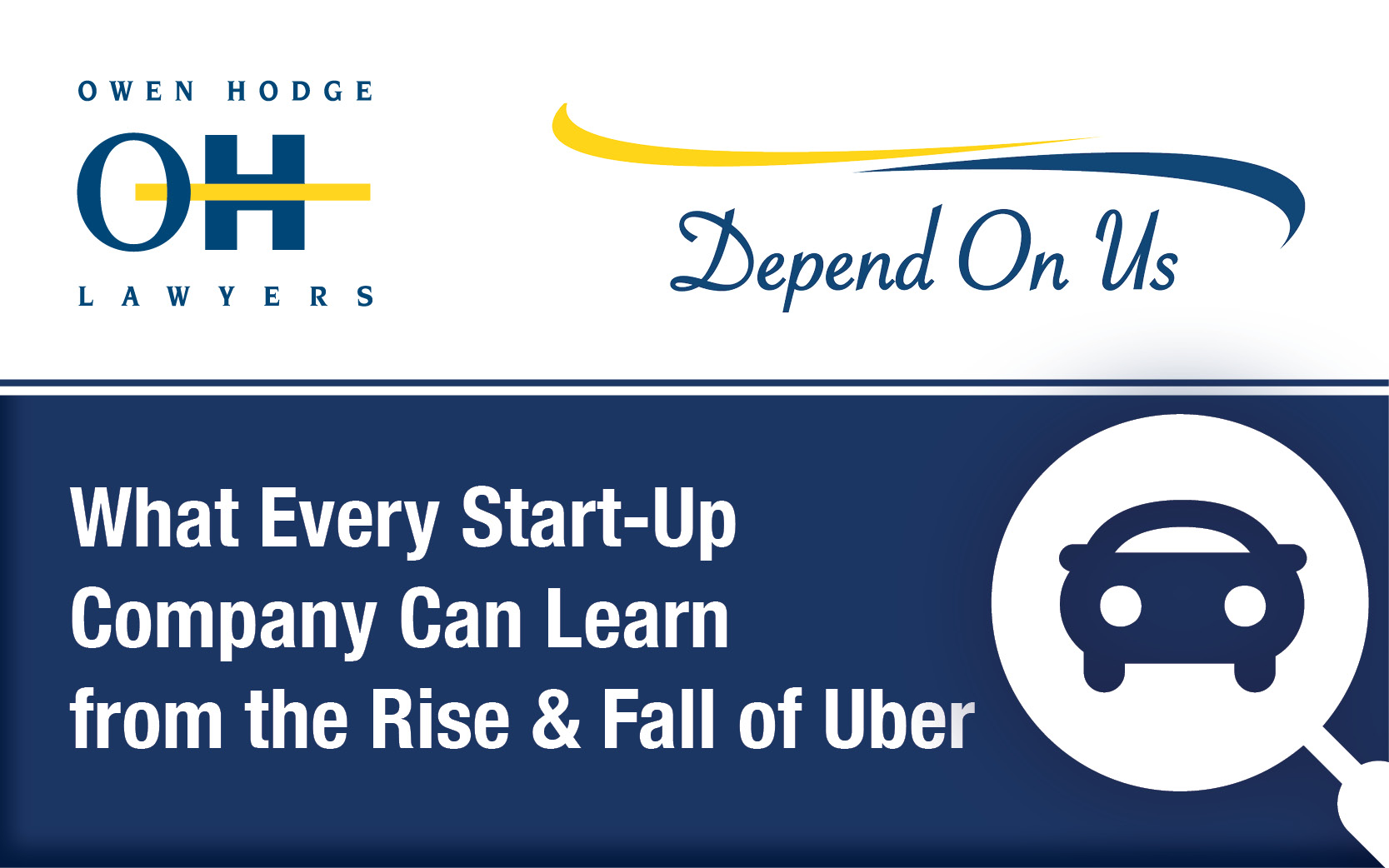
Uber’s basic business model platform uses a mobile app to connect drivers and riders, and the company has been groundbreakingly successful since its launch in 2009. Currently worth nearly $60 billion, it raised more than 60% of the funding going to on-demand start-ups in 2014; it has reportedly created more than 160,000 jobs in the U.S. alone and now operates in more than 500 cities worldwide.
and the company has been groundbreakingly successful since its launch in 2009. Currently worth nearly $60 billion, it raised more than 60% of the funding going to on-demand start-ups in 2014; it has reportedly created more than 160,000 jobs in the U.S. alone and now operates in more than 500 cities worldwide.
It has also been plagued by lawsuits, a situation now so grave that the initial public offering anticipated in 2017 has dissolved into unrest and disruption, acting as a warning for other Start Up companies in the marketplace.
The Fall of Uber – Current Issues Plaguing the once successful start-up
The success of this once relatively unknown start-up company has been widely reported. Uber is used as a benchmark of success for other start-ups, with apps such as Menulog and Deliveroo being touted as the ‘Uber for Food’.
However, recently Uber has been in the spotlight, and not in a positive way.
- The Federal Court recently rejected a legal challenge by Uber that would exempt drivers from paying GST;
- A rash of lawsuits in which passengers have been injured in accidents or assaulted by drivers has led courts in various jurisdictions to find that Uber’s process for onboarding drivers is dangerously negligent;
- In a class action lawsuit in the U.S. drivers have accused Uber of misclassifying them as independent contractors rather than employees, thus depriving them of legally required employee benefits;
- Also in the U.S. Uber passenger has filed an antitrust lawsuit against Uber and its CEO Travis Kalanick for price fixing ;
- Notwithstanding Kalanick’s public mea culpa concerning workplace culture, a female former engineer at Uber has hired a prominent law firm to investigate allegations of sexual harassment in the workplace;
- An Uber executive has been accused of stealing intellectual property of driverless car technology from his former employers at Google.
- Uber made no friends in Sydney in December 2014 when those fleeing a terrorist attack found themselves charged surge pricing.
- In the U.S. alone, Uber is facing more than 70 federal lawsuits.
A fatal flaw in Ubers’ design?
At its inception, Uber argued that it was not a taxicab company, but an internet/app  platform. This allowed Uber to bypass existing laws and regulations associated with transport companies. This was the revolutionary re-imagining of transportation that caught the fancy of tech investors. The idea had some traction for a while, and from it flowed a number of other decisions: drivers were not employees; the company therefore had no obligation to perform background checks or withhold taxes or ensure that drivers were not unfairly dismissed, for example.
platform. This allowed Uber to bypass existing laws and regulations associated with transport companies. This was the revolutionary re-imagining of transportation that caught the fancy of tech investors. The idea had some traction for a while, and from it flowed a number of other decisions: drivers were not employees; the company therefore had no obligation to perform background checks or withhold taxes or ensure that drivers were not unfairly dismissed, for example.
But regulators and the taxman will have their day, and the basic premise, while charming those with deep pockets, seemed to lose currency in the courts.
What can other Start-Ups learn?
A flawed central premise is hardly enough to explain a toxic work culture, growing passenger dissatisfaction or allegations of theft. Business analysts have also cited the failure of the company to grow its internal management structure to keep pace with its rapid expansion.
Among the lessons that other start-up companies might take away are:
- Prepare to be nimble, even when that means modifying basic operating premises in response to legal and regulatory resistance;
- Be proactive in creating a transparent corporate culture where workers have confidence that grievances will be heard and addressed;
- Communicate policies and procedures to all workers and provide sufficient training to incoming employees;
- Be proactive in handling scandals that may arise;
- Empower local managers to make crucial decisions in order to comply with laws, regulations and social constructs in multiple geographic jurisdictions.
- Above all, don’t go it alone.
At Owen Hodge Lawyers, our attorneys have been adept at advising businesses in all stages of development. If you have questions about your business’s legal or regulatory requirements or about structuring details, please call us at 1800 770 780 to schedule a consultation.
